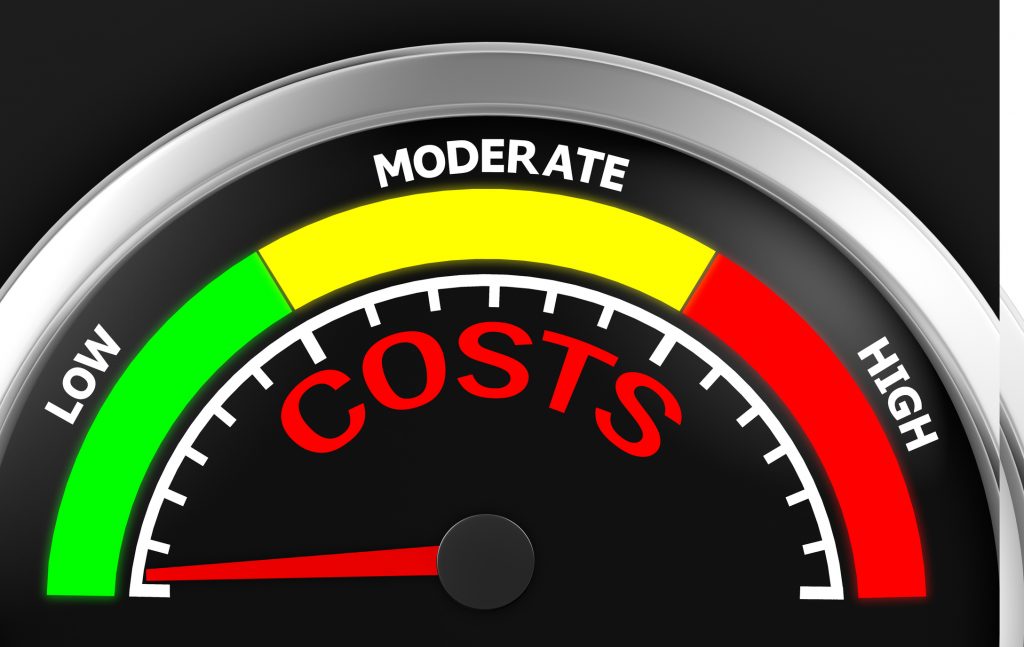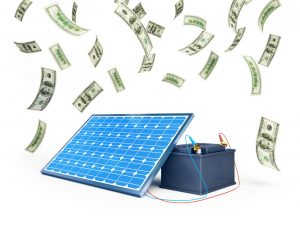If you’re reading this, you probably already know about the significant impact solar energy will make on the environment, how you can expect to see lower bills, and many other benefits of solar energy. Now that you’ve decided to make the move for your business, it’s time to evaluate the cost to go solar. While everyone can appreciate lowering their monthly and annual costs, the initial investment may still seem unclear. So what does it really cost to convert your business to solar energy?
Aurora Energy, based in Angels Camp, California, can help!.
Get a Cost Estimate
As with most products and services, prices will obviously vary throughout the country and according to the size of the system you’ll need. Whether or not you’re in Northern California like us, here’s a solid starting point to gauge your cost.
- Determine the Accurate System Size: The cost of solar systems for commercial installation range between 3.00- 7.00 per watt depending on a few factors. Is it a roof mount system, a ground mount system? How large is the system size going to be? Are you replacing the roof, HVAC, or other electrical appliances, etc. when you do the solar installation? Aurora will help you find the accurate numbers for your job by starting with getting a download of your previous interval data history for a 12 month period from your utility company. This allows us to determine how many kWh annually you need to provide with solar power. Then we can create a proposal for you, including the price per watt you will be paying for all of your tax deductible green energy improvements.
- Determine Your Tax Savings: Once we know the price per watt and the total project cost, we will subtract any applicable tax credits to reach your final investment amount. This includes federal tax credits, state tax credits, rebates, battery storage credits, depreciation deductions, etc.
- Secure Your Project Financing: Once we have the project costs and the total costs after deductions, you will have an idea of what costs are out of pocket and how much you need to start your installation project. We can also assist you with financing options in some areas where there are incentive programs available for commercial businesses.
If doing calculations isn’t your thing, no worries. You can always contact your local Aurora Energy solar sales consultants for more detailed information.
How to Finance Solar Panels
Now that you know what size solar system you’ll need as well as the estimated cost, it’s time to decide how to pay for it. If you can swing it, cash is the best option. Your solar savings will start almost immediately and, more importantly, you’ll see those monthly energy costs start moving downward. But if you have a capital improvement budget or the ability to get a loan based on your property value, that is another great choice. Using your own independent financing is always going to save you between 6-20% on financing fees otherwise charged by lenders or loan organizations that pass along fees to the dealer — fees that increase your total cost and thus your price per watt cost.
Not everyone is able to pay upfront in cash, which is completely understandable, and leasing is not a possibility in California. Now what? There are some areas where loan programs for solar are available based on the equity of your building. We can help you explore the option if you are interested. You may also have the option of getting a loan through your company’s financial institution for capital green energy improvements. If you can get a loan directly for your improvements, you will be paying lower financing fees overall.
Do You Qualify for Solar Tax Credits?
Going solar is a significant investment for your business. Finding every available resource to add to your funding is key.
Up to 26% of your initial investment costs can be offset by federal tax credits. For 2020, the tax credit is 26%, so you still have time to utilize this free cash before the tax credit drops to 22% in 2021.
The tax credits can be used for items other than just the cost of solar panels. When going solar, the tax credit can apply to some other related costs, such as a new roof, HVAC, electrical, appliances or other improvements to the property.
Everyone Loves a Guarantee
There’s a wide variety of solar panels on the market, but at Aurora Energy, we only offer high-quality, long-lasting options. That way, you get the most from your investment.
Aurora’s standard warranty:
- 25 years on roof penetration
- 12 years on the inverter
- Panels: 30 years linear production and 25 years workmanship.
Let’s Get You to Net Zero
In essence, net zero means that your solar panels are producing as much energy as you’re using. But, to be clear, net zero does not mean you no longer get a power bill. Here’s how it works.
During the day, your panels will be producing energy … more energy than you can use just to power your business. Of course, at night your panels don’t produce energy. And when it’s shady, you probably won’t be producing enough electricity to fully cover your needs.
You’ll still be tied into the grid. So, when you are producing more energy than you can use, the excess goes back into the grid and the power company uses it to provide energy to others. You get a credit for the excess energy your panels produce that goes into the grid. Then, when it’s dark and other times your energy production is not enough for your needs, you pull power from the grid and debit some of those credits the power company has given you.
Every month, you’ll get a statement listing your Kilowatt usage for the month. Then, at the end of the year, the power company will bill you for anything you used above what your solar panels created. If, over the past year, you generated more energy than you used, the power company will give you a reimbursement. If your system has been designed properly (and with Aurora Energy, you can bet it will be), you should owe at or close to nothing. That’s net zero.
Going Solar is a Good Investment
Now that you understand the ins and outs of going solar for your business, are you ready to get some exact numbers? Let’s talk! We’ll go over your energy needs and put together a customized solar design to fit your needs. Email our CEO at Ali@AuroraEnergyOnline.com or fill out this form to message us.




